Good day to all!
In my Spring project, I am trying to get rid of a fairly popular error in my opinion - org.hibernate.loader.MultipleBagFetchException. I want to implement the methods getOneClothesById(Long id) and getAllClothes().
In @ Service-layer, I want to take data fromClothes (size,category, color) and display them on the screen and/or modify them before sending somewhere else.
I read a couple of books and even went to the 4-5th page in Google, but I suppose that I still haven't found the best solution.
People suggest the following approaches to solve the problem :
Use
Set<...>instead ofList<...>
Links:My comment: I believe that this is not a good approach. Here is the link with explanation:
- Use
Fetch.Eagerinstead ofFetch.Lazy, or add@LazyCollection(LazyCollectionOption.FALSE)
Links:- SO_Answer(2011)
- SO_Answer(2015) My comment: That's not the best solution, as it doesn't deal with the problem in the long-term.
Use
@OrderColumn(before -@IndexColumn)
Links:My comment: That deasls (partly) with the problem, but according to documentation - that would exclude option
orderByUse Vlad Mihalcea's approach: Links:
My comment: I suppose that this is the best solution that deals with
org.hibernate.LazyInitializationExceptionis his. However, I would like to adopt his approach to the reality of the Spring Framework (2.2.6.RELEASE).
What I want:
I want to find a better approach to solving the problem within the framework of the Spring Framework. The answer that is after the picture with the Database is essentially a solution to the problem. However, I have the following questions:
- I do not like the fact that I use
@Transactionalto get rid of the problemorg.hibernate.LazyInitializationException: failed to lazily initialize ... - How to properly take this approach into a separate class, to reuse it? It would be the right solution if I create the class
ClothesRepositoryFetchwith the annotation@Repositoryand then call this repository in the@Service-layer. - Is there any better solution to this problem using only JPA?
My Database looks like:
ClothesService.java
@Transactional
public ResultDTO getOneClothesById(Long id){
ResultDTO resultDTO = new ResultDTO();
//Getting clothes with Category
Clothes clothes = entityManager
.createQuery(
"select distinct clothes " +
"from Clothes clothes " +
"left join fetch clothes.categories " +
"where clothes.id = :id", Clothes.class)
.setHint(QueryHints.PASS_DISTINCT_THROUGH, false)
.setParameter("id", id)
.getSingleResult();
//Getting clothes with Color
clothes = entityManager
.createQuery(
"select distinct clothes " +
"from Clothes clothes " +
"left join fetch clothes.colors color " +
"where clothes = :clothes", Clothes.class)
.setParameter("clothes", clothes)
.setHint(QueryHints.PASS_DISTINCT_THROUGH, false)
.getSingleResult();
//Getting clothes with Size
clothes = entityManager
.createQuery(
"select distinct clothes " +
"from Clothes clothes " +
"left join fetch clothes.sizes size " +
"where clothes = :clothes", Clothes.class)
.setParameter("clothes", clothes)
.setHint(QueryHints.PASS_DISTINCT_THROUGH, false)
.getSingleResult();
System.out.println(clothes.getCategories().size());
System.out.println(clothes.getColors().size());
System.out.println(clothes.getSizes().size());
if (clothes != null){
resultDTO.setResult(ResultForDTO.SUCCESS);
resultDTO.addClothesDTO(converterClothesToDTO(clothes));
} else {
resultDTO.setResult(ResultForDTO.ERROR);
resultDTO.setMessage("Невозможно найти одежду по такому ID");
}
return resultDTO;
}
Code
Clothes.java:
@Entity
@Table
@NoArgsConstructor
@Getter
@Setter
@ToString
public class Clothes {
@Id
@GeneratedValue(strategy = GenerationType.IDENTITY)
private Long id;
@Column
private String name;
@Column
private Double price;
/*
Color: ManyToMany
*/
@ManyToMany(fetch = FetchType.LAZY,
cascade = {
CascadeType.PERSIST,
CascadeType.MERGE
})
@JoinTable(name = "clother_color",
joinColumns = { @JoinColumn(name = "clother_id") },
inverseJoinColumns = { @JoinColumn(name = "color_id") })
private List<Color> colors = new ArrayList<>();
public void addColor(Color color) {
colors.add(color);
color.getClothes().add(this);
}
public void removeColor(Color color) {
colors.remove(color);
color.getClothes().remove(this);
}
/*
Size: ManyToMany
*/
@ManyToMany(fetch = FetchType.LAZY,
cascade = {
CascadeType.PERSIST,
CascadeType.MERGE
})
@JoinTable(name = "clother_size",
joinColumns = { @JoinColumn(name = "clother_id") },
inverseJoinColumns = { @JoinColumn(name = "size_id") })
private List<Size> sizes = new ArrayList<>();
public void addSize(Size size) {
sizes.add(size);
size.getClothes().add(this);
}
public void removeSize(Size size) {
sizes.remove(size);
size.getClothes().remove(this);
}
/*
Category: ManyToMany
*/
@ManyToMany(fetch = FetchType.LAZY,
cascade = {
CascadeType.PERSIST,
CascadeType.MERGE
})
@JoinTable(name = "clother_category",
joinColumns = { @JoinColumn(name = "clother_id") },
inverseJoinColumns = { @JoinColumn(name = "category_id") })
private List<Category> categories = new ArrayList<>();
public void addCategory(Category category) {
categories.add(category);
category.getClothes().add(this);
}
public void removeCategory(Category category) {
categories.remove(category);
category.getClothes().remove(this);
}
@Override
public boolean equals(Object o) {
if (this == o) return true;
if (o == null || getClass() != o.getClass()) return false;
Clothes clothes = (Clothes) o;
return Objects.equals(id, clothes.id);
}
}
Category.java:
Category, Size, Color have a common structure, so I will present only one of them
@Entity
@Table
@NoArgsConstructor
@Getter
@Setter
public class Category {
@Id
@GeneratedValue(strategy = GenerationType.IDENTITY)
private Long id;
@Column
private String name;
@ManyToMany(mappedBy="categories")
private List<Clothes> clothes = new ArrayList<>();
public void addClothes(Clothes clothes) {
this.clothes.add(clothes);
clothes.getCategories().add(this);
}
public void removeClothes(Clothes clothes) {
this.clothes.remove(clothes);
clothes.getCategories().remove(this);
}
@Override
public boolean equals(Object o) {
if (this == o) return true;
if (o == null || getClass() != o.getClass()) return false;
Category category = (Category) o;
return Objects.equals(id, category.id);
}
}
